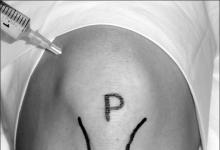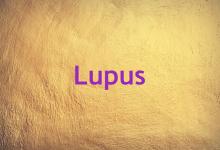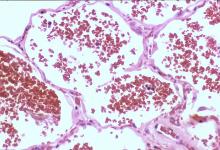IL-1 Suppression May Improve Dilated Cardiomyopathy Save

Interleukin-1 (IL-1) suppression helped reverse symptoms of dilated cardiomyopathy (DCM) for one patient in a case study that may implicate inflammation in the development of the condition.
The 57-year-old man with a 2-year history of DCM had been hospitalized for chronic fatigue and dyspnea secondary to heart failure (New York Heart Association class III). Transthoracic echocardiography (TTE) showed a severely dilated left ventricle; left ventricular ejection fraction (LVEF) was 28%. Cardiac catheterization showed normal coronary arteries.
After 6 months of optimal medical therapy, the patient remained symptomatic - - TTE again showing a severely dilated left ventricle.
With no autoantibodies in blood or viral genome sequences in endomyocardial biopsy, he was determined to meet criteria for idiopathic inflammatory DCM, Giulio Cavalli, MD, of San Raffaele Scientific Institute in Milan, Italy, and colleagues reported online in the Annals of Internal Medicine.
The patient was then started on subcutaneous injections of anakinra (Kineret, the recombinant form of the endogenous antagonist for the interleukin-1 receptor) - - and "the clinical response was striking," Cavalli's group said.
Within 2 weeks, the patient improved to New York Heart Association class I and had LVEF climb to 38%.
Four weeks in, LVEF rose even further, to 42%. There was no change in myocardial scarring, but myocardial edema nearly resolved and ventricular ectopic beats almost disappeared. A decrease in the serum interleukin-6 level (a measure of the amount of inflammation sustained by interleukin-1) confirmed that anakinra had effectively suppressed the inflammation, the researchers reported.
"This patient with DCM experienced what we believe to be unprecedented clinical improvement with use of anakinra to inhibit interleukin-1. Improvement began soon after anakinra administration and was obvious by every measure. The patient felt better and was able to lead a more normal life," they said.
Much is already known about the safety of anakinra from patients with rheumatologic conditions, according to Cavalli and colleagues, who said they believed "that this treatment and the role of chronic low-grade inflammation in DCM deserve further investigation."The inflammatory hypothesis in cardiovascular disease was validated last year in the CANTOS trial, in which another anti-inflammatory monoclonal antibody, canakinumab (Ilaris), reduced cardiovascular events by 15%.
That drug carries a cost of $16,000 per injection, which was once every 3 months in CANTOS. Anakinra, at the standard 100 mg per day dose, retails for about $1,000 per week.
Cavalli reported personal fees from SOBI and Novartis.










If you are a health practitioner, you may Login/Register to comment.
Due to the nature of these comment forums, only health practitioners are allowed to comment at this time.